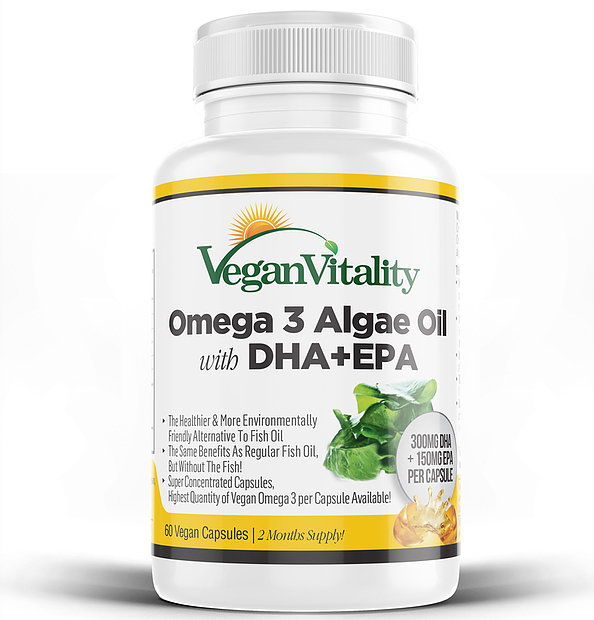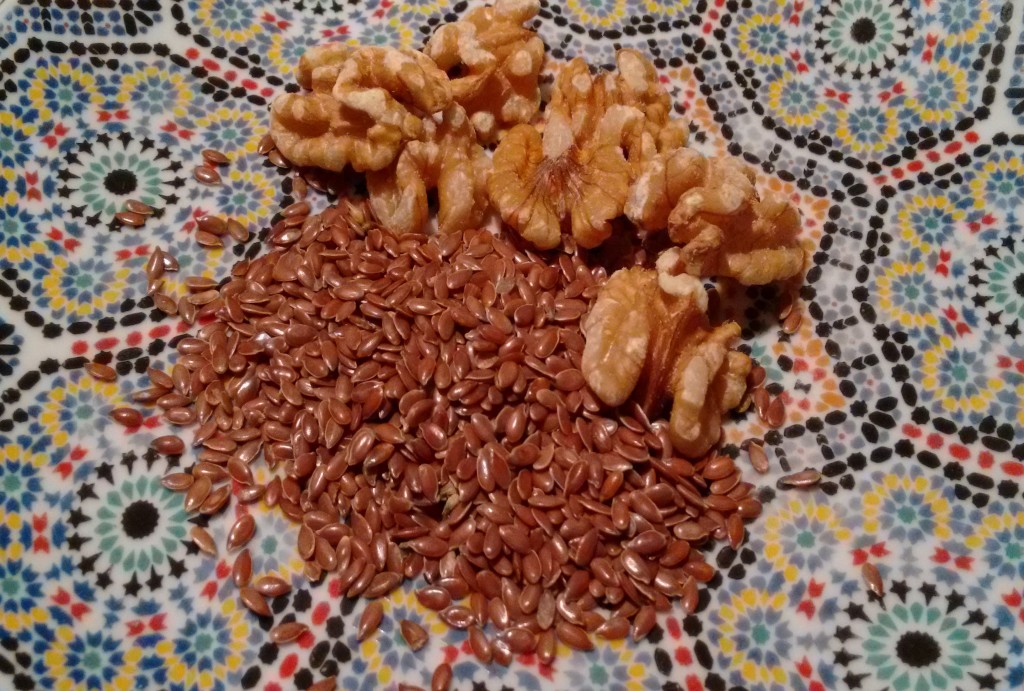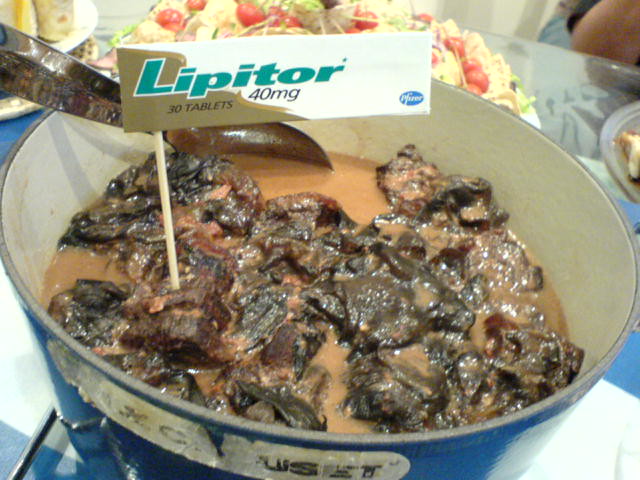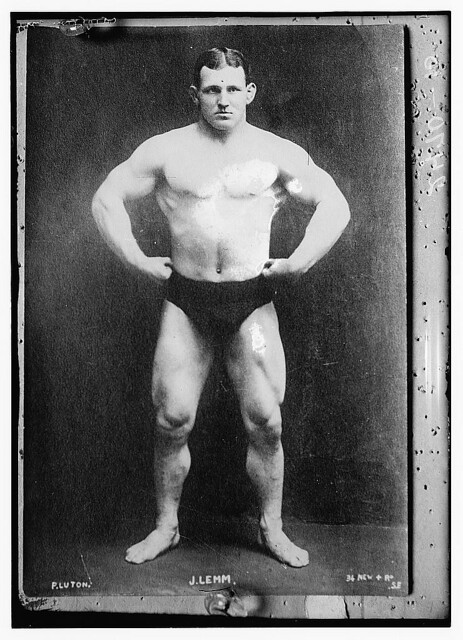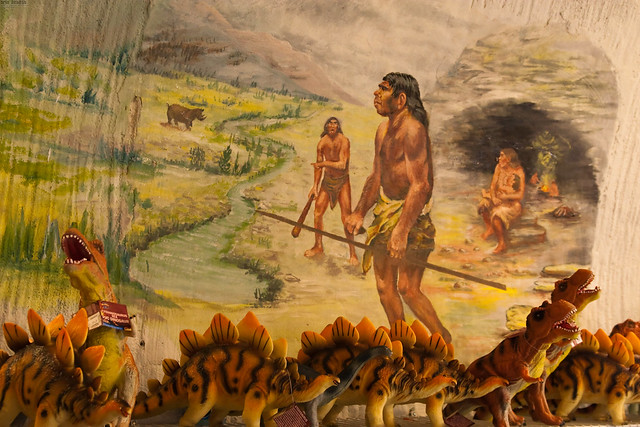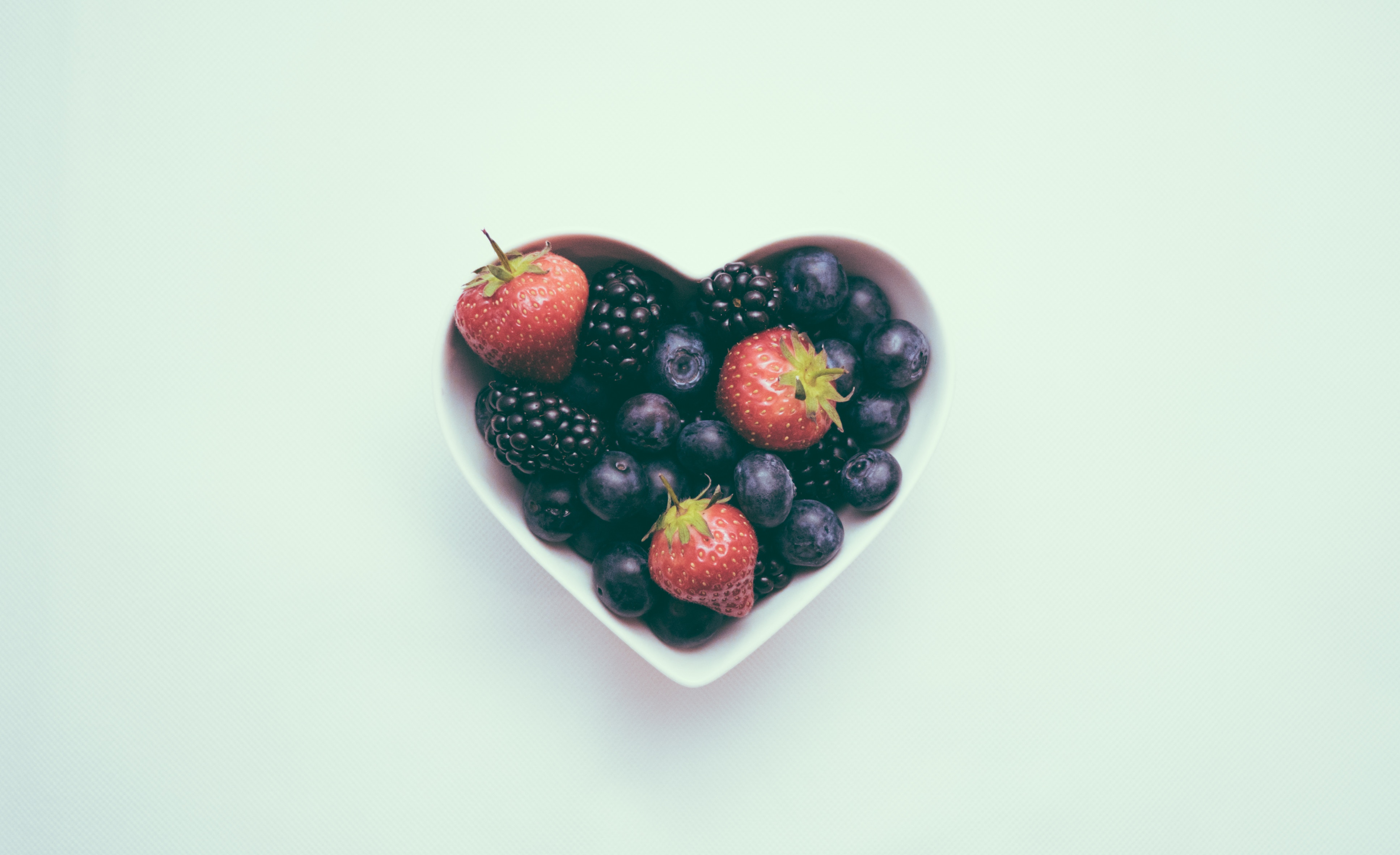As a vegan coach and nutritionist, many’s the time I’ve been asked about omega 3, and how to obtain adequate amounts on a plant-based diet.
Omega 3 is vital for heart, eye, joint, brain and mental health, amongst other things.
The answer is – it’s easy. Include a couple of tablespoons of ground flaxseeds on your breakfast oatmeal every day; snack on a few walnuts a week; eat a varied, colourful, whole food diet; and you’re good.
However, as with lots of nutrients (protein, calcium, iron etc), I’m fighting against decades (if not more) of societal conditioning that has told us the only place to get sufficient amounts of omega 3 is from animal products – and that the best source is fish, and fish oil.
This is the short version of why this myth persists:
Omega 3 consists of ALA, DHA and EPA.
These are a-linolenic acid, docosahexaenoic acid and eicosapentaenoic acid.
The DHA and EPA can only be obtained, we are told, from fish and fish oil.
What we are never told, is that if we consume flax seed, walnuts and oatmeal that are all rich in ALA, our bodies are perfectly capable of converting the ALA into the DHA and EPA.
But…but….BUT:
What if you just want a super quick way of ensuring you are getting enough omega 3? What if you are allergic to seeds? What if you hate oatmeal because it reminds you of your yucky boarding school porridge? What if you just want another way to get omega 3 for the days you just don’t fancy oatmeal and flaxseeds? What if you have heard the ‘omega 3 comes from the sea’ line so much that you’d JUST PREFER to get it from a sea-based source? (I would completely understand this – we have been so indoctrinated that sometimes it’s hard to change our thinking).
And there is some truth to omega 3 coming from the sea.
Seaweed contains the DHA and EPA. This is, in fact, where the fish get their omega 3. So you can cut out the middle man (fish?) and just go straight to the source!
But how will you know if you are eating enough? I mean, it’s great to eat vegan nori rolls and sushi, and sprinkle wakame flakes into noodle dishes, and to eat miso – but they are not necessarily things we would eat every day, so….. how to ensure we would be getting enough omega 3?
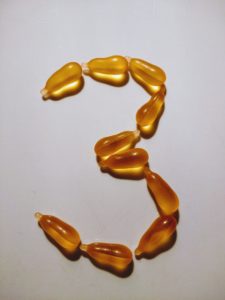 British-based company Vegan Vitality have us completely covered on this. They have made a vegan capsule with algae (seaweed) oil containing concentrated levels of EPA and DPA – more than any other algae oil capsule currently available, which means you need only take 1 – 2 capsules daily to ensure adequate levels of omega 3.
British-based company Vegan Vitality have us completely covered on this. They have made a vegan capsule with algae (seaweed) oil containing concentrated levels of EPA and DPA – more than any other algae oil capsule currently available, which means you need only take 1 – 2 capsules daily to ensure adequate levels of omega 3.
As it doesn’t come from fish, it doesn’t contain any of the nasties that are currently found in all sea creatures – the PCB’s, dioxins, heavy metals etc. And of course, there is not the fishy aftertaste you’d get from a fish oil capsule.
My partner gets up late and ends up rushing like a mutha to get to work on time (I feel sure plenty of you reading this will relate 🙂 ), and so almost NEVER has the time to pour himself out a bowl of oatmeal and grind up some flax seeds. These capsules are an ideal way of getting his daily omega 3. He has been taking them for the past week. We can’t really report any benefits in such a short time, but he says it’s nice not having to feel bad because he knows he hasn’t eaten the nutrients he should have.
Now I’m all about price. I really AM Bargain Basement Betty – attractive as that is. These capsules are available on Amazon for £15.99 for 60 capsules, which is a 2 month supply. For peace of mind that you are getting this critical nutrient, I’d say that was excellent value.
If you know you are not the person who is going to be eating oatmeal and flax seeds most days- whether due to lack of time or it’s just not your thing, or even if you just want to make sure you have back up for those days you have no groceries left in the house, or you’re eating breakfast out etc – then I recommend these capsules.
Omega 3 is important, make sure you have it covered!
Please note: Excepting the pot of capsules I was sent to review, I am not being paid for this article. This article reflects my authentic, professional opinion, as with every product I review.

